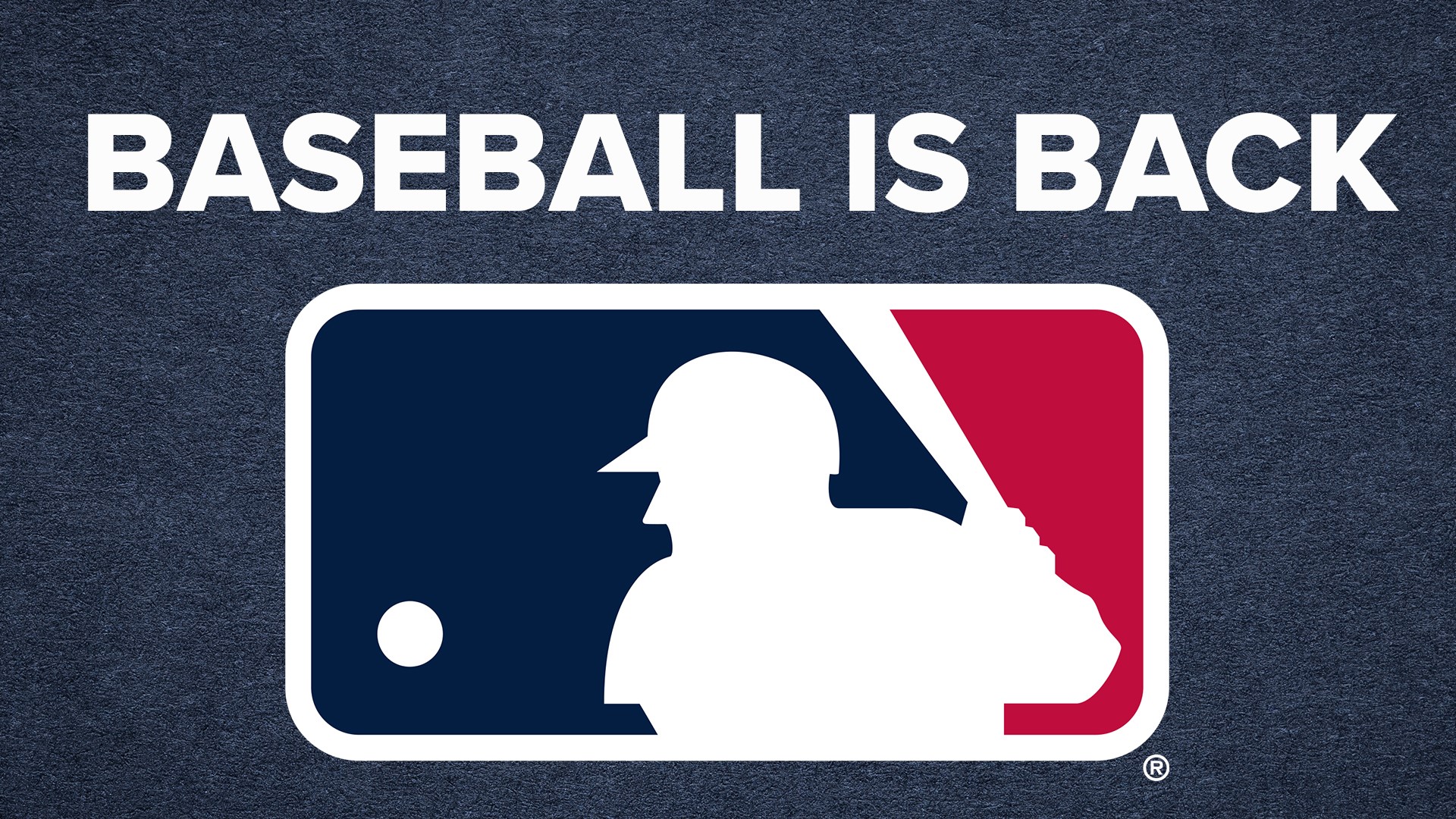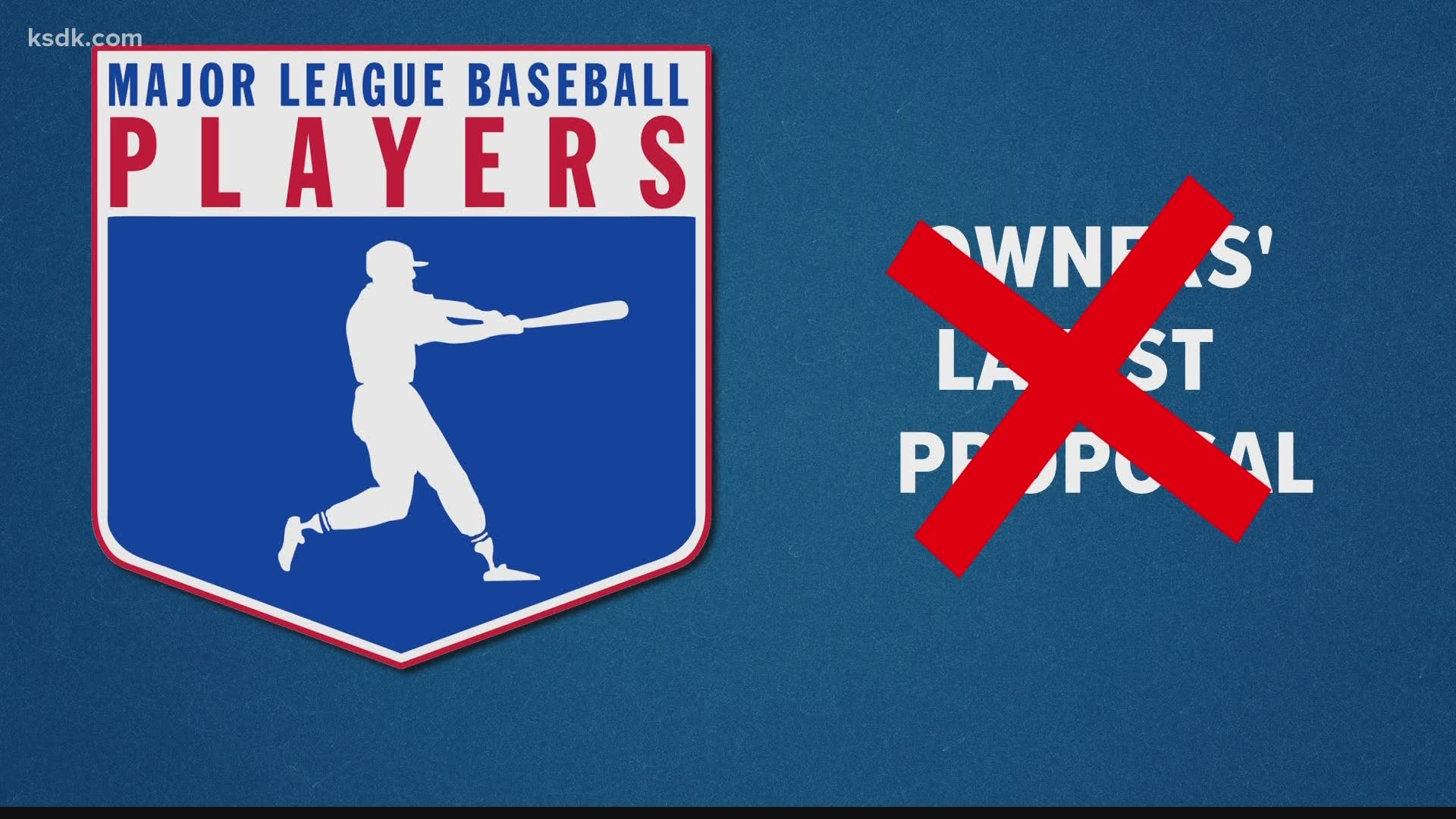On Tuesday evening the word finally came down from Major League Baseball and the MLB Players' Union. Baseball is back.
According to the Associated Press, players are set to report for training camps on July 1, with a 60-game season to follow beginning on July 23 or 24.
Each team will play 10 games against each of its four division rivals and four games vs. each of the five clubs in the corresponding division in the other league, according to details obtained by The Associated Press.
A team is scheduled to make only one trip to each city it visits in MLB's shortest season since 1878.
In a twist, the sides expanded the designated hitter to games involving National League teams and instituted the radical innovation of starting extra innings with a runner on second base.
The number of playoff teams will remain at 10, though that still could change.
The trade deadline will be Aug. 31 and the deadline for postseason eligibility is Sept. 15.
Active rosters will be 30 during the first two weeks of the season, 28 during the second two weeks and 26 after that. They will not expand to 28 on Sept. 1, as originally intended this year.
With no minor leagues, teams would be allowed to retain 60 players each, including a taxi squad. Up to three players from the taxi squad can travel with a team to a game, and one of the three must be a catcher.
MLB is keeping the innovation of the three-batter minimum for pitchers, but decided to keep the injured list minimum for pitchers at 10 days rather than revert to 15, as initially intended. But the new rule remains in place that a pitcher must face at least three batters or finish the half inning.
Owners and players have spent more than three months of mostly fruitless talks on how to play amid the coronavirus pandemic.
The union committed its members to starting reporting July 1 — those who decide to report. High-risk individuals would be allowed to opt out and still receive salary and service time, but others who sit out would get neither money nor the service credit needed for eligibility for free agency and salary arbitration.
MLB originally hoped to be the first U.S. major league to return, with an 82-game schedule starting around the Fourth of July, but public sniping broke out between management and players who distrust teams' claims of economic losses following years of franchise appreciation. MLB claimed that without gate-related revenue it would lose $640,000 for each additional regular-season game, a figure the union disputed.
MLB became exasperated with the union's leadership team, headed by former All-Star first baseman Tony Clark and Bruce Meyer, a litigator hired in August 2018. Manfred and Deputy Commissioner Dan Halem were infuriated when Clark said he considered the result of a one-on-one meeting with Manfred last week a proposal rather than what MLB termed a framework for a deal.
Depending on a final decision on when to start, the season would be played in roughly 64-67 days and would be scheduled to end Sept. 27. That would leave little margin to make up September rainouts.
Players would be given staggered reporting times over several days for intake screening. The time will be used for coronavirus testing ahead of the resumption of workouts, which were stopped March 12 due to the pandemic.
Under terms of the deal the sides reached on March 26, which was to have been opening day, players would receive prorated portions of their salaries if the 60-game schedule is not cut short by the virus. Salaries originally totaled $4 billion, and the prorated portion of about 37% reduces pay to $1.48 billion.
Salaries were to have ranged from $563,500 at the minimum to $36 million for Mike Trout and Gerrit Cole at the top, but the spread would now be from $208,704 to $13,333,333.
With no minor leagues, teams would be allowed to retain 60 players each. Active rosters would be 30 during the first two weeks of the season, 28 during the second two weeks and 26 after that.
MLB initially had sought last month in its initial economic proposal to reduce pay to about $1 billion, and players vowed not to give up full prorated pay and proposed a 114-game schedule that amounted to $2.8 billion.
The relationship deteriorated back to the level of the labor wars that led to eight work stoppages from 1972-95, and the union has threatened a grievance claiming MLB didn’t fulfill the provision in the March deal requiring the longest season economically feasible, conditioned by several other provisions. MLB would claim the union bargained in bad faith, and the case would be argued before arbitrator Mark Irvings.
That would be a prelude to the expiration of the current labor contract on Dec. 1, 2021, which likely will be followed by a lockout.
More MLB News
RELATED: Albert Pujols will pay the salaries of Angels staff members furloughed in the Dominican Republic
RELATED: Dear baseball: Just figure it out


